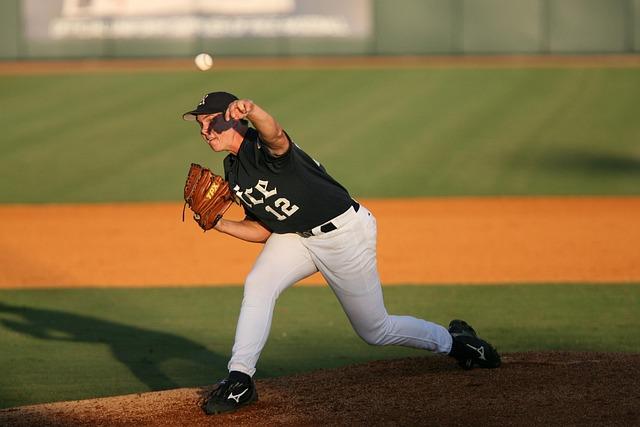The NCAA has officially withdrawn its controversial proposal that would have permitted college athletes to bet on professional sports, signaling a retreat amid widespread criticism and concerns over the integrity of collegiate athletics. The decision comes after intense scrutiny from member institutions, sports officials, and legal experts who cautioned that such a policy shift could blur ethical lines and potentially jeopardize amateur competition. This move marks a significant moment in the ongoing debate surrounding sports betting and its intersection with college athletics.
NCAA Reverses Course on Athlete Betting Rules Amid Integrity Concerns
The NCAA has officially withdrawn its earlier proposal that would have permitted college athletes to wager on professional sports. This decision comes amid rising apprehensions about safeguarding the integrity of collegiate athletics. Athletic officials and compliance experts expressed alarm that allowing athletes to place bets-even outside their own sports-could open new avenues for conflicts of interest and potential exploitation. In response, the NCAA emphasized its commitment to preserving fair competition and protecting athletes from situations that might undermine public trust.
Key reasons cited by the NCAA for reversing the rule include:
- Integrity of the game: Ensuring athletes remain free from gambling influence that could affect performance or decision-making.
- Compliance complexity: The difficulty of monitoring and enforcing betting rules across multiple sports jurisdictions.
- Public perception: Maintaining fan confidence in the authenticity of college athletics outcomes.
| Pros of Allowing Betting | Cons of Allowing Betting |
|---|---|
| Increased athlete autonomy | Higher risk of match-fixing allegations |
| Potential financial benefits | Challenges in regulatory oversight |
| Alignment with pro sports policies | Damage to NCAA reputation |
Implications for College Athletes and Professional Sports Relationships
The NCAA’s withdrawal of the proposed rule permitting college athletes to engage in betting on professional sports fundamentally shifts the landscape of athlete participation and professionalism. This decision underscores ongoing concerns regarding integrity, conflicts of interest, and potential exploitation in athletic relationships. Athletes navigating the dual roles of student and competitor remain bound by stricter regulations, reinforcing the traditional amateur status that defines collegiate sports. Moreover, this measure safeguards the delicate boundaries separating college athletics from professional sports dynamics, preserving trust among fans, institutions, and governing bodies.
For institutions and professional leagues, the ruling offers clear signals about the NCAA’s stance on gambling-related activities and its impact on athlete conduct. Key implications include:
- Maintaining clear ethical standards that govern athlete behavior and prevent undue influence from gambling interests.
- Preserving recruitment and endorsement protocols by avoiding blurred lines between amateurism and professional incentives.
- Protecting athlete welfare by minimizing exposure to gambling-related pressures that could impact performance and mental health.
| Affected Parties | Potential Impact |
|---|---|
| College Athletes | Restricted betting activities; sustained academic-athletic focus |
| NCAA & Institutions | Enhanced regulatory clarity; reinforced amateurism standards |
| Professional Leagues | Continued separation from collegiate betting influence |
Expert Analysis on the Risks of Allowing Betting in College Athletics
Allowing college athletes to participate in betting, even when restricted to professional sports, introduces a labyrinth of ethical and operational challenges. Experts warn that it could blur the lines between amateur status and professional behavior, jeopardizing the integrity of collegiate competitions. The risk of match-fixing, pressure from external gambling interests, and potential conflicts of interest heighten concerns about maintaining a fair playing field. Moreover, since student-athletes often lack comprehensive education on responsible gambling, there’s a heightened chance of addiction and financial distress.
Key issues raised by analysts include:
- Increased vulnerability to exploitation by third parties seeking to manipulate game outcomes.
- Lack of consistent regulatory frameworks across different states and conferences.
- Compromised mental health due to gambling-related stress and distraction from academic and athletic commitments.
| Risk Factor | Potential Impact |
|---|---|
| Match Manipulation | Undermines competitive fairness |
| Gambling Addiction | Academic & athletic decline |
| Conflicts of Interest | Damages athlete reputation |
Recommendations for Strengthening Compliance and Protecting Athlete Welfare
To ensure the integrity of college sports while prioritizing athlete welfare, it is essential to implement comprehensive education programs that emphasize the risks associated with sports betting. Institutions should collaborate with athletic departments and compliance offices to roll out mandatory workshops focusing on ethical decision-making and the consequences of gambling. Additionally, establishing anonymous reporting channels will empower athletes and staff to report suspicious activities without fear of retaliation, thereby creating a safer environment that deters illicit behavior.
Key strategies for bolstering compliance include:
- Regular audits of athlete activities and financial transactions to identify potential vulnerabilities.
- Clear communication of revised NCAA policies with frequent updates reflecting changing legal landscapes.
- Partnerships with mental health professionals specializing in addiction to support athletes at risk.
| Initiative | Benefit |
|---|---|
| Education Workshops | Increased Awareness |
| Anonymous Reporting | Enhanced Transparency |
| Mental Health Support | Preventative Care |
| Regular Audits | Early Detection |
Concluding Remarks
The NCAA’s decision to rescind the proposed rule permitting college athletes to bet on professional sports marks a significant moment in the ongoing debate over gambling regulations in collegiate athletics. As the organization continues to navigate the complex landscape of sports integrity and athlete welfare, this reversal underscores the cautious approach regulators are taking amid growing concerns about the potential impact of gambling on amateur sports. Stakeholders across the college sports community will be closely watching how the NCAA proceeds with future policies to ensure fair play and maintain public trust.




